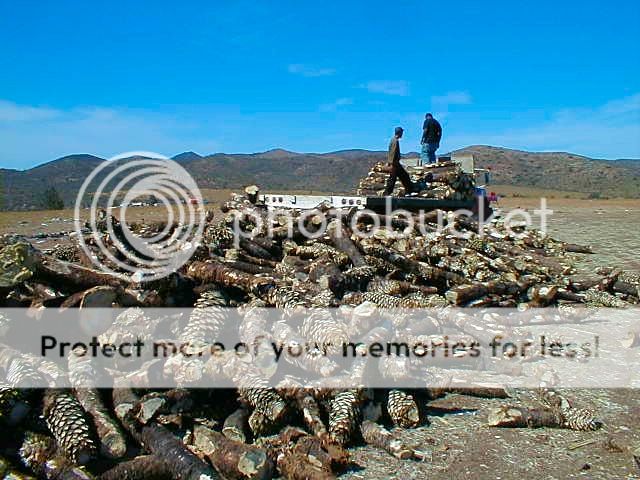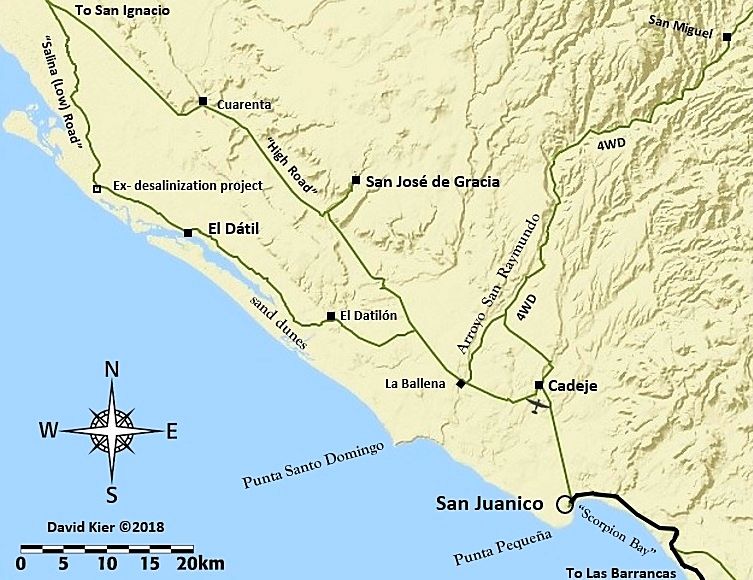
In recent years, yucca poachers have illegally (without permits) ravaged the wild yuccas in the Sierra de Juárez, Baja California. The leaves are hacked off with a machete, and the center sections hauled out by the truckload. The leaves with their sharp points are scattered all over the dirt roads, easily penetrating tires. A local vaquero told me that the yucca is processed near Maneadero and shipped to Asia. The poachers get a high price per metric ton. These poachers are reportedly armed, and not just with machetes.








